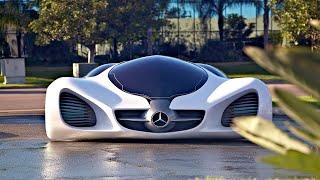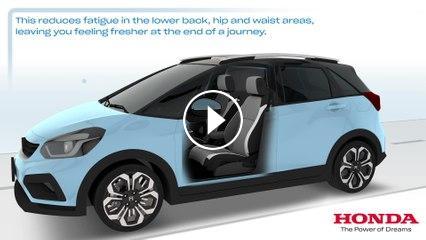When reimagining the next generation of Jazz, Honda engineers and designers were united in their ambition to put driver and occupant comfort at the heart of all their decision making. By considering all elements of the car as one development team, decisions impacting structure, design and ergonomics were made simultaneously, resulting in class-leading levels of comfort and spaciousness and a significant step forward from its predecessor.
Central to achieving this is Honda’s newly developed body stabilising seat frame with supportive mat structure. The new front seat mat structure is placed at both the bottom and back of the seat and replaces the S-spring design of previous models. The introduction of a wider seat bottom has allowed the seat pad depth to be increased by 30mm with the additional softness immediately noticeable when seated. This new structure combined with the increased padding allows the cushion to flex moderately but, crucially, to not bottom out.
The enhanced structure in the back of the seat increases lumbar and pelvic support to create a body stabilising effect. This helps to prevent fatigue, particularly in the hip and waist area of occupants on longer journeys. Additionally, the new structure makes it easier to maintain a comfortable and stable driving posture, even when cornering and on uneven road surfaces.
Central to achieving this is Honda’s newly developed body stabilising seat frame with supportive mat structure. The new front seat mat structure is placed at both the bottom and back of the seat and replaces the S-spring design of previous models. The introduction of a wider seat bottom has allowed the seat pad depth to be increased by 30mm with the additional softness immediately noticeable when seated. This new structure combined with the increased padding allows the cushion to flex moderately but, crucially, to not bottom out.
The enhanced structure in the back of the seat increases lumbar and pelvic support to create a body stabilising effect. This helps to prevent fatigue, particularly in the hip and waist area of occupants on longer journeys. Additionally, the new structure makes it easier to maintain a comfortable and stable driving posture, even when cornering and on uneven road surfaces.












Comments